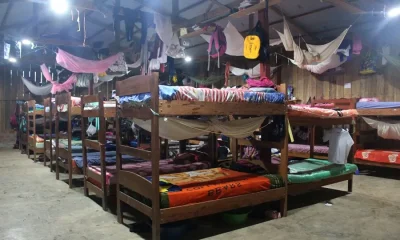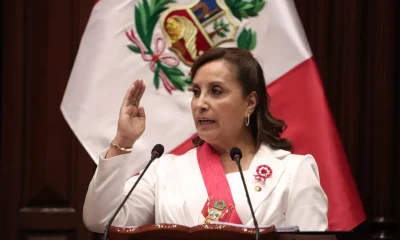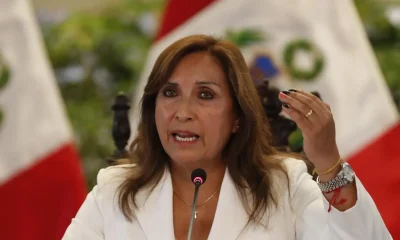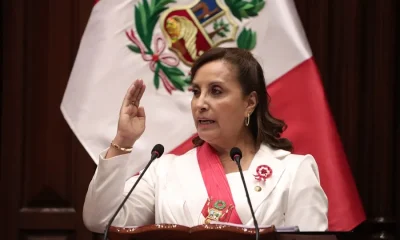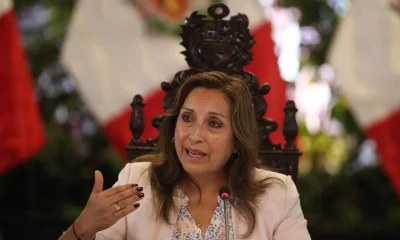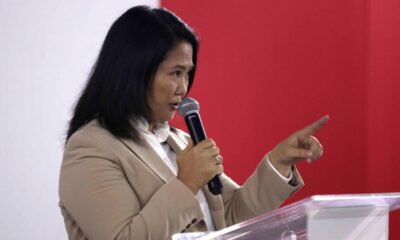International
Peru declares state of emergency as ousted leader remains in prison
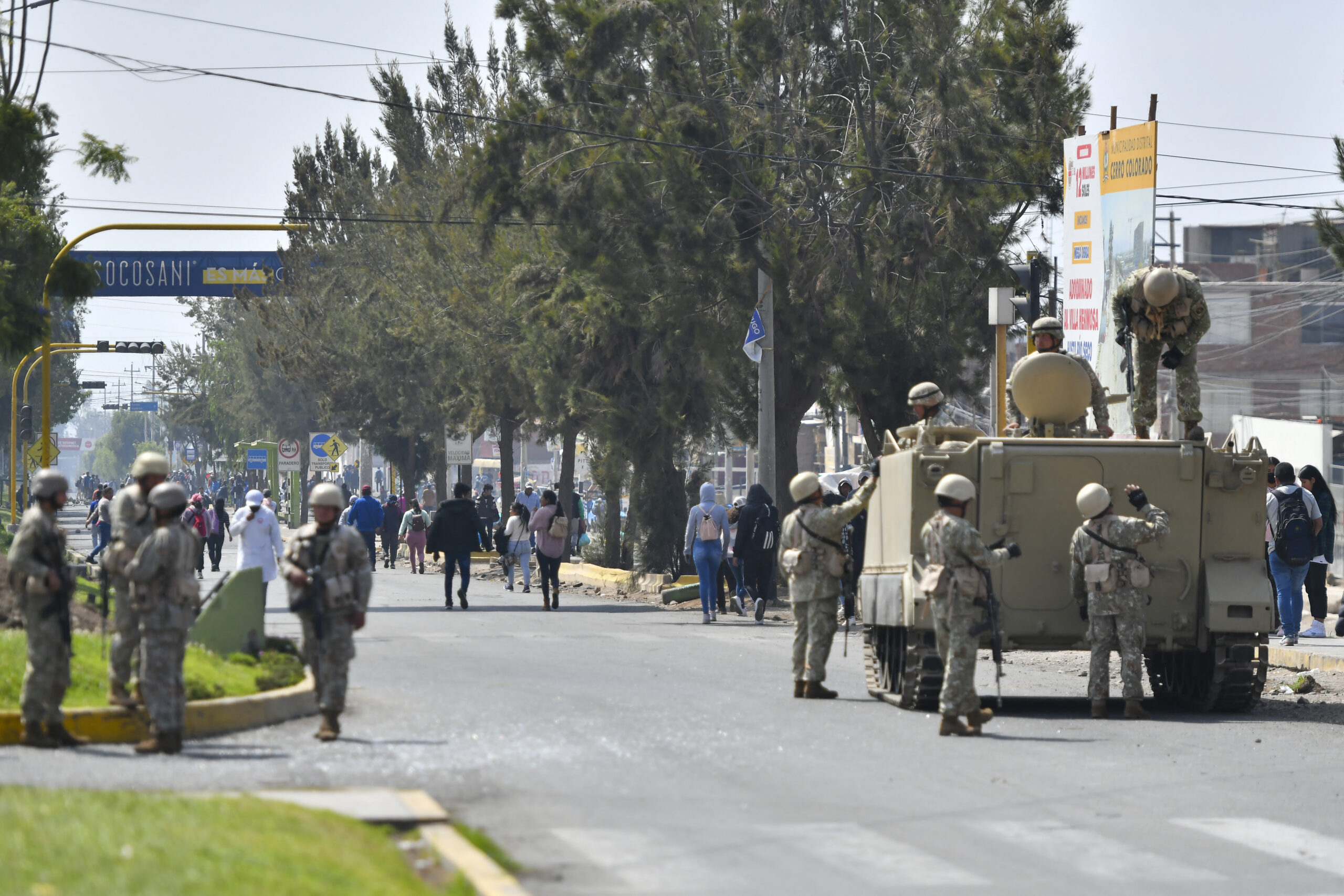
| By AFP | Luis Jaime Cisneros and Patrick Fort |
Peru declared a nationwide state of emergency Wednesday amid violent protests against the ouster of ex-president Pedro Castillo that have left seven people dead.
The announcement came as a judge ordered Castillo to remain in prison, on charges of rebellion and conspiracy for another 48 hours ahead of a release hearing.
Castillo’s arrest last week after he tried to dissolve congress and rule by decree has sparked days of nationwide protests that quickly escalated into violence.
Defense Minister Alberto Otarola announced the new 30-day state of emergency due to “acts of vandalism and violence, road blocks.”
He said the measure involved “the suspension of the freedom of movement and assembly” and could also include a night-time curfew.
The new president, Dina Boluarte, again moved to ease tensions by calling for elections to be brought forward, this time to December 2023.
On Sunday, Boluarte had already said she would seek to advance elections from 2026 to 2024 but that did not appease Castillo supporters demanding his release and elections now.
Last week, a judge ordered Castillo to be held for seven days, and he was meant to be released on Wednesday.
However, prosecutors filed a request late on Tuesday to hold him in pre-trial detention for 18 months.
Judge Juan Checkley on Wednesday postponed a hearing on the new request until Thursday after defense attorneys argued they had not received all documents from the public prosecutor.
He also ordered Castillo to remain in detention for another 48 hours.
Castillo, a leftist former school teacher, was in power for only 17 months in the South American nation that is prone to political instability and is now on its sixth president in six years.
His short period in office was marked by a power struggle with the opposition-dominated Congress, and six investigations into him and his family mainly for corruption.
‘Serious social convulsion’
Castillo was facing his third impeachment bid when, last Wednesday, he announced he was dissolving Congress and would rule by decree.
But lawmakers went ahead and voted to sack him and he was quickly arrested while trying to flee to the Mexican Embassy and seek asylum.
Boluarte, who was Castillo’s vice president, was sworn in as his successor.
Her attempts to calm tensions have failed, including an earlier state of emergency in several flashpoint regions.
Boluarte has now twice proposed advancing elections.
“Legally it works for April 2024 but by making some adjustments we can bring them forward to December 2023,” she told reporters.
Rights ombudsman Eliana Revollar told AFP on Tuesday that things could still get worse.
“This is a very serious social convulsion. We fear that it will lead to an uprising because there are people calling for an insurrection, who are asking to take up arms,” said Revollar.
Five people were killed in clashes between protesters and security forces on Monday following another two on Sunday.
Six of the seven deaths have been in the Apurimac region, where Boluarte was born.
‘I will never give up’
Castillo also appeared in court on Tuesday by video link as he appealed his initial seven-day detention.
He called his arrest unjust and arbitrary and said he would “never give up and abandon this popular cause that brought me here.”
He also called on security forces “to lay down their arms and stop killing these people thirsty for justice.”
Protests by Castillo supporters began almost immediately after his arrest.
Mexico’s leftist President Andres Manuel Lopez Obrador, who said his country still recognizes Castillo as president, has joined other regional leftist leaders in pledging support for the ousted leader.
Protesters have set up road blocks in numerous regions.
The worst-hit areas are in the north and south, including the region of Cusco, a tourism lure that is home to the Machu Picchu Inca citadel, and Peru’s second city, Arequipa.
In Lima, dozens of demonstrators threw stones at the police on Tuesday evening as they tried to reach Congress, with the police firing tear gas to disperse them.
Indigenous and agrarian organizations called an indefinite strike to begin on Tuesday, forcing the train service between the city of Cusco and Machu Picchu to be suspended.
International
Mexico requests extradition of ‘Mini Lic’ for murder of journalist Javier Valdez
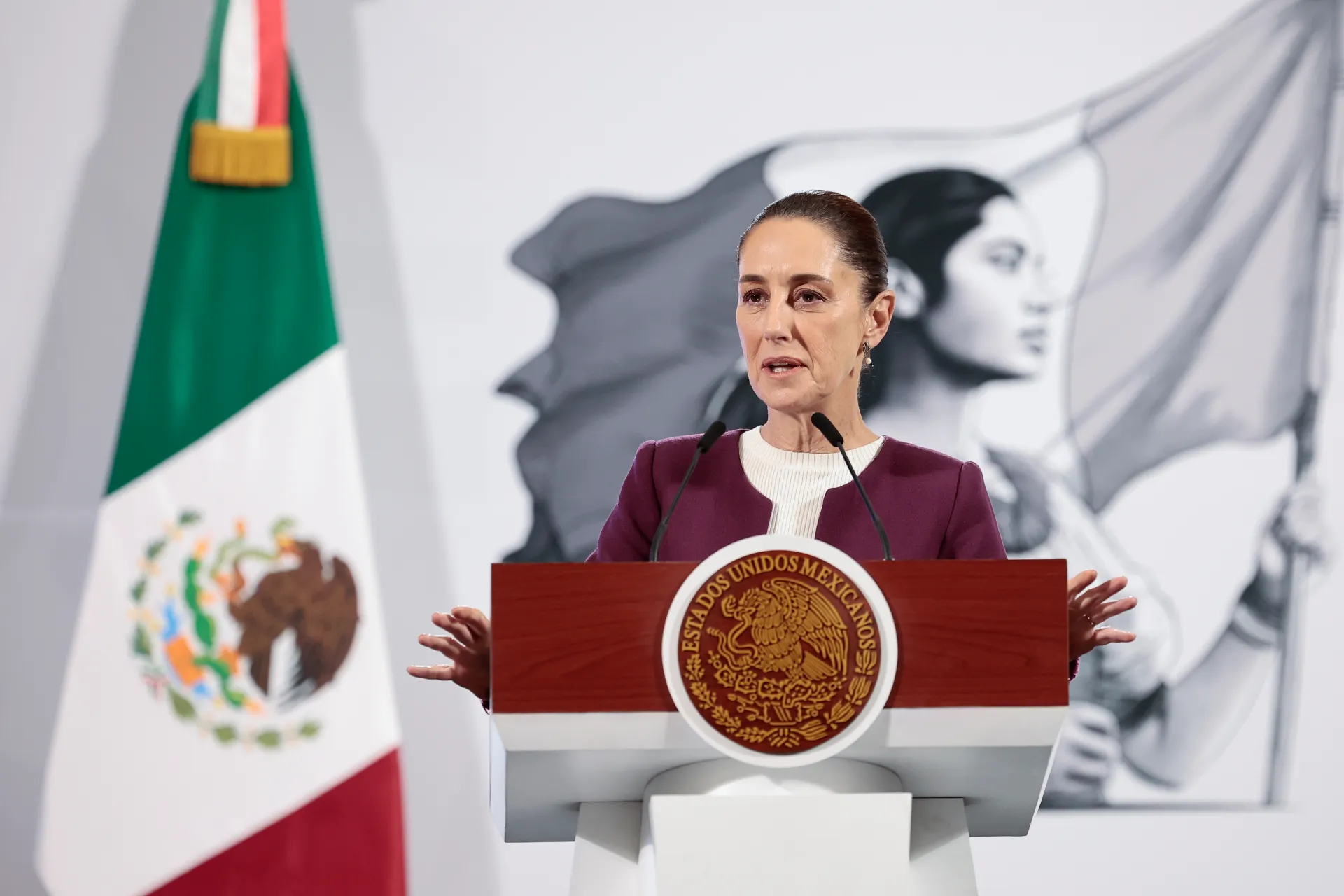
The Mexican government has requested the extradition of Dámaso López Serrano, a former high-ranking member of the Sinaloa Cartel, who is accused of masterminding the 2017 murder of Mexican journalist Javier Valdez, the Attorney General’s Office announced on Tuesday.
López Serrano, known as “Mini Lic,” was arrested last Friday in Virginia, United States, on charges of fentanyl trafficking, a crime he committed while on parole.
“This is the key issue for us, he [López Serrano] is the mastermind of this murder. The rest of the perpetrators are already processed and in jail, he was the one missing,” said Attorney General Alejandro Gertz.
“We immediately made the extradition request,” the official added during the routine morning press conference of President Claudia Sheinbaum.
Valdez, an award-winning reporter specializing in drug trafficking and correspondent for AFP and the newspaper La Jornada, was murdered on May 15, 2017, in front of the office of his magazine Riodoce in Culiacán, the capital of Sinaloa state.
“Mini Lic” was originally arrested in 2017 when he voluntarily turned himself in to U.S. authorities and pleaded guilty to trafficking methamphetamine, heroin, and cocaine. In 2022, he was released on parole.
Gertz confirmed that the Mexican Attorney General’s Office had requested López Serrano’s extradition “countless times,” but Washington had declined to act on the request because he had become a “protected witness” for the U.S. government and “was providing a lot of information.”
“Now, with this situation where they themselves are acknowledging that this individual is still committing crimes, I think there are more than enough reasons for them to support us,” the prosecutor added.
The Sinaloa Cartel is one of the largest drug trafficking organizations in Mexico and was founded by Joaquín “El Chapo” Guzmán, who is serving a life sentence in the United States.
Culiacán has been shaken by a wave of murders since the arrest of Ismael “Mayo” Zambada, another key leader of the cartel alongside Guzmán, on July 25 in New Mexico, United States.
International
Cuba’s government stresses openness to serious, respectful U.S. relations
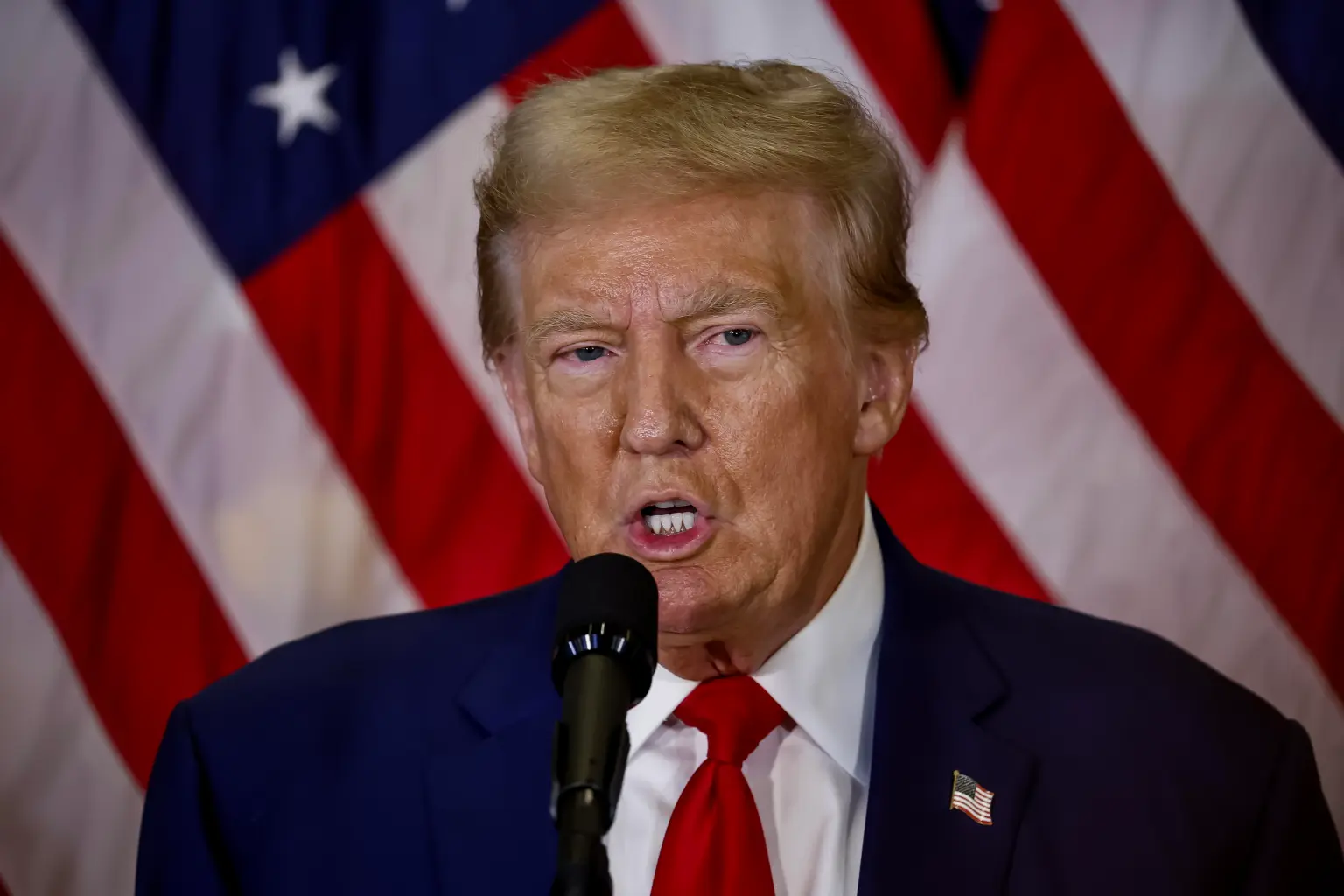
Cuba reiterated on Tuesday its willingness to engage in dialogue with the United States, just weeks before Republican President Donald Trump assumes office. During his first term, Trump halted the historic rapprochement between the two countries, which had been initiated just ten years earlier by Democrat Barack Obama.
“It will not be Cuba that proposes or takes the initiative to suspend the existing dialogues, to suspend the existing cooperation. Not even the discreet exchanges on some sensitive issues,” said Cuban Deputy Minister of Foreign Affairs Carlos Fernández de Cossío at a press conference in Havana.
“We will be attentive to the attitude of the new government, but Cuba’s stance will remain the same as it has been for the last 64 years. We are willing to develop a serious, respectful relationship with the United States, one that protects the sovereign interests of both countries,” he added.
His statements come on the occasion of the tenth anniversary of the historic rapprochement announcement between Washington and Havana.
On December 17, 2014, Cuban leader Raúl Castro (2006-2021) and Barack Obama (2008-2016) announced the beginning of a thaw in relations, which led to the restoration of diplomatic ties in 2015, after more than half a century of confrontation.
This process of thawing bilateral relations was later halted by businessman Donald Trump, who significantly reinforced economic sanctions against the communist-ruled country. The Republican will return to the White House on January 20.
Cuba, under a U.S. trade embargo since 1962, was re-listed in 2021 on the “blacklist of countries supporting terrorism,” blocking financial and economic flows to the island of 10 million inhabitants.
Subsequently, the administration of current Democratic President Joe Biden made only slight adjustments to the sanctions and also kept Cuba on this list. However, his administration resumed bilateral contacts with Havana on migration issues and the fight against terrorism.
International
Mexican government to use church atriums for gun surrender program to combat violence
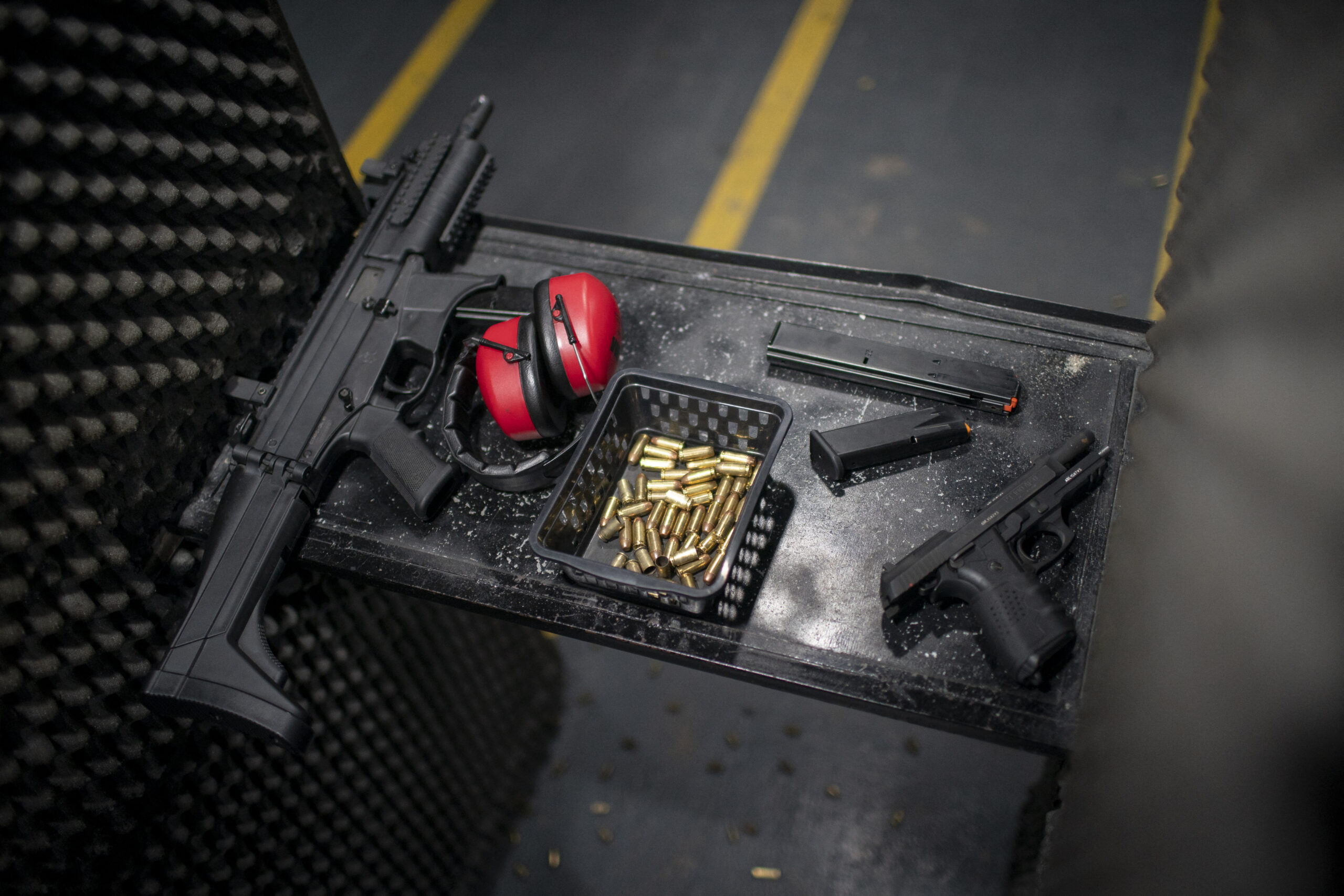
The atriums of Mexican Catholic churches will be used for the voluntary surrender of weapons in exchange for economic and legal incentives as part of a plan announced on Tuesday by the government to reduce violence.
According to the Mexican government, there is a link between the illegal trafficking of weapons—almost entirely coming from the United States—and the spiral of criminal violence that has plagued the country since late 2006, when a controversial military anti-drug offensive was launched.
“The idea is to set up areas in the church atriums where people can voluntarily surrender their weapons, and in return, they will receive financial resources based on the weapon they are turning in,” explained President Claudia Sheinbaum during her regular press conference.
The left-wing leader emphasized that the program, called “Yes to Disarmament, Yes to Peace,” guarantees that those who surrender their weapons will not face any “investigation.”
“What we want is to disarm. This will be implemented next year. We also did it in Mexico City, and it had significant results,” added the former mayor of the capital, with a population of 9.2 million.
The disarmament plan is part of the government’s “comprehensive security strategy,” one of whose pillars is promoting a culture of peace, especially in regions severely affected by organized crime violence, Sheinbaum pointed out.
More than 450,000 people have been murdered in Mexico since the government launched its military-led anti-drug operation, alongside about 100,000 people who have gone missing.
Despite being a secular state, the Mexican Catholic Church has played a key role in efforts to contain violence, with priests acting as mediators between citizens and criminals. Several clergy members have been killed for this cause.
Just last week, the Catholic hierarchy called on cartels to declare a truce in their violent actions during the celebration of the Virgin of Guadalupe on December 12 and the upcoming Christmas holidays.
-
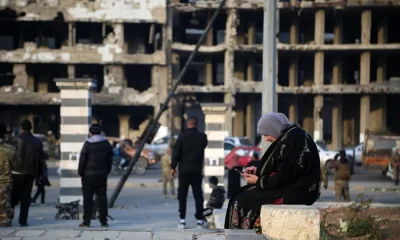
 International3 days ago
International3 days agoFrance will send a diplomatic delegation to Syria after 12 years without official representation
-

 Central America2 days ago
Central America2 days agoEl Salvador’s $9.663 billion budget for 2025 focuses on key sectors with no new debt issuance
-
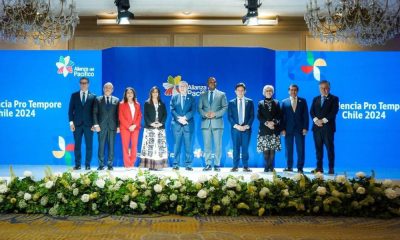
 Central America4 days ago
Central America4 days agoCosta Rica takes step toward full membership in Pacific Alliance to Stimulate Trade and Jobs
-

 Central America4 days ago
Central America4 days agoHonduras Seizes Over 26 Tons of Cocaine in 2024, Marking Major Drug-Fighting Achievements
-
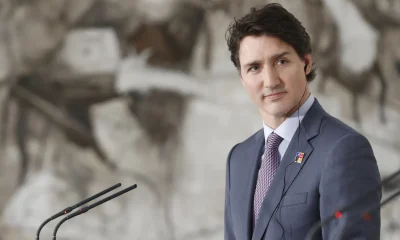
 International2 days ago
International2 days agoChrystia Freeland resigns as Canada’s deputy PM over dispute with Trudeau on U.S. Tariff Threats
-

 International4 days ago
International4 days agoGustavo Petro visits the Galápagos Islands for bilateral talks with Ecuador’s Daniel Noboa
-

 International2 days ago
International2 days agoAt least 12 injured in shooting at abundant life christian school in Wisconsin
-

 International2 days ago
International2 days agoVenezuela announces 179 new releases in post-election violence cases
-
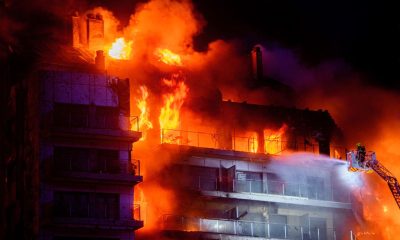
 International2 days ago
International2 days agoTrinidad and Tobago Education Minister Lisa Morris-Julian dies in house fire with her children
-
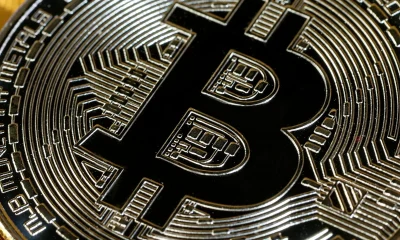
 International2 days ago
International2 days agoEl Salvador’s bitcoin reserves soar in value as cryptocurrency’s bullish surge continues
-

 International2 days ago
International2 days agoMilan’s Via MonteNapoleone overtakes Fifth Avenue as world’s most expensive retail destination
-

 International2 days ago
International2 days agoNearly 40 dead in Istanbul after consuming contaminated alcohol in six weeks
-
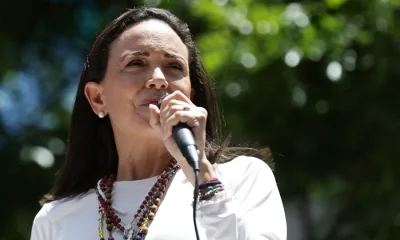
 International3 days ago
International3 days agoMaría Corina Machado says that Nicolás Maduro is “cornered” inside and outside Venezuela
-
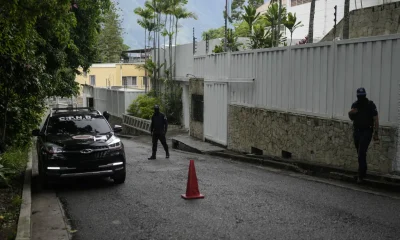
 International4 days ago
International4 days agoVenezuelan opposition in Argentine embassy urges Brazil to expedite safe passage
-
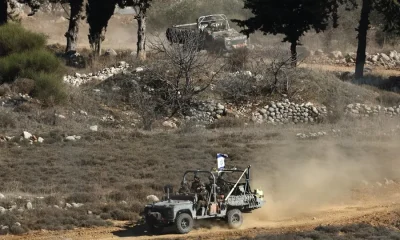
 International3 days ago
International3 days agoNetanyahu: “Israel’s policy in Syria will depend on the emerging reality”
-
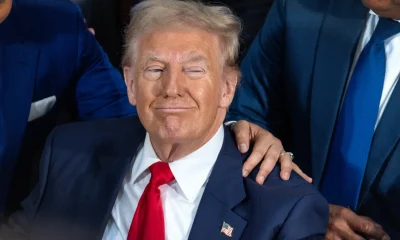
 International4 days ago
International4 days agoMayor Brandon Johnson Vows to Protect Chicagoans from ICE Actions
-
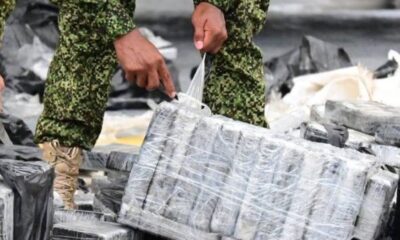
 International4 days ago
International4 days agoEcuador police intercept major drug shipment destined for Europe
-
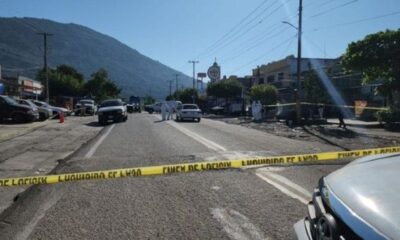
 International18 hours ago
International18 hours agoHomemade landmine explosion in Michoacán kills two soldiers, injures five
-
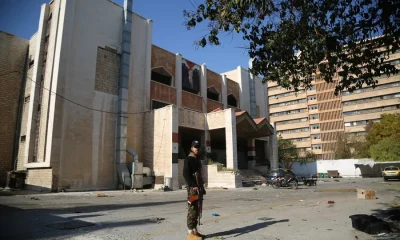
 International3 days ago
International3 days agoThe new Syrian authorities plan to end compulsory military service
-
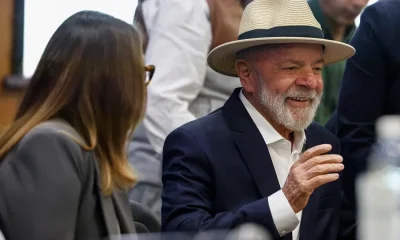
 International3 days ago
International3 days agoLula asks for severe sanction if the guilt of general arrested for coup is proven
-

 International18 hours ago
International18 hours agoColombian nationals arrested for human trafficking and disappearance of migrant boat
-

 International3 days ago
International3 days agoThe Constitution of Venezuela, a quarter of a century later
-
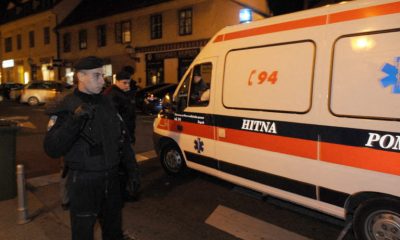
 International18 hours ago
International18 hours agoAustrian man arrested in Croatia with deceased woman as passenger in his car
-
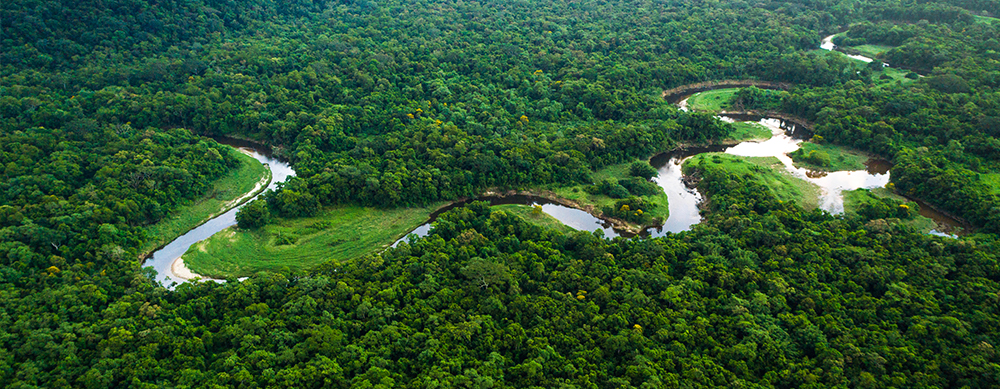
 International18 hours ago
International18 hours agoEcuador announces debt swap of $1.527 billion to protect Amazon rainforest
-

 International53 mins ago
International53 mins agoPatient hospitalized with severe avian flu case in Louisiana, CDC reports
-

 Central America44 mins ago
Central America44 mins agoAmnesty International condemns Nicaragua’s unprecedented repression of dissent
-

 International47 mins ago
International47 mins agoNASA delays return of two astronauts stranded on ISS until at least March
-

 International51 mins ago
International51 mins agoUkraine’s security a priority as NATO discusses future of conflict with Russia
-
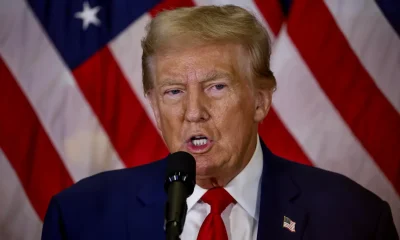
 International41 mins ago
International41 mins agoCuba’s government stresses openness to serious, respectful U.S. relations
-
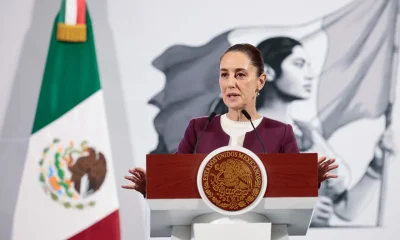
 International37 mins ago
International37 mins agoMexico requests extradition of ‘Mini Lic’ for murder of journalist Javier Valdez
-

 Sports35 mins ago
Sports35 mins agoReal Madrid clinches fourth Intercontinental Cup with 3-0 victory over Pachuca
-
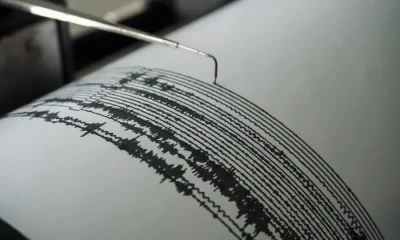
 Central America33 mins ago
Central America33 mins agoEl Salvador’s MARN monitors ongoing seismic activity in La Unión department
-
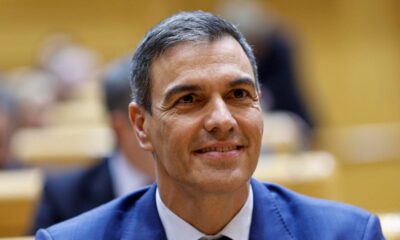
 International50 mins ago
International50 mins agoBegoña Gómez defends her actions as investigations into her role at Complutense University continue
-

 International46 mins ago
International46 mins agoMexican government to use church atriums for gun surrender program to combat violence



















